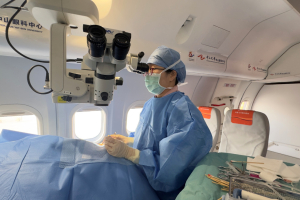
On April 3-6, 2025, the 40th Congress of the Asia-Pacific Academy of Ophthalmology (APAO 2025) was held in New Delhi, India. A dedicated SPECS Asia thematic symposium was convened, facilitating in-depth discussions on controlling refractive errors and key public health issues in ophthalmology across the Asia-Pacific region, and jointly exploring new models for regional eye health collaboration.
Zhongshan Ophthalmic Center (ZOC) of Sun Yat-sen University, which hosts the WHO Collaborating Centre for Eye Care and Vision and is the only location in China housing the headquarters of international medical academic organizations (specifically the Asia-Pacific Academy of Ophthalmology and the Afro-Asian Council of Ophthalmology Asia Office), co-chaired this symposium alongside Aravind Eye Hospital of India, one of the symposium's hosts.
The event brought together experts online and offline from the World Health Organization (WHO) Headquarters, WHO Western Pacific Regional Office, WHO South-East Asia Regional Office, WHO Country Office in India, WHO Collaborating Centres in ophthalmology from four countries (China, India, Singapore, Australia), and several other international authorities. Lively discussions focused on strategies for refractive error control and critical public health challenges in the Asia-Pacific region.
The symposium was co-chaired by Professor Lin Haotian, President of ZOC; Professor Thulasiraj Ravilla of Aravind Eye Hospital, India; and Professor Nathan Congdon, ZOC Adjunct Professor from Queen's University Belfast, UK. Speakers and panelists included Mr. Enrique DOMINGO from the WHO Western Pacific Regional Office; Dr. Tashi TOBGAY from the WHO South-East Asia Regional Office; Dr. Mohammed ASHEEL from the WHO Country Office in India; Professor Mingguang HE from The Hong Kong Polytechnic University; Ms. Cheng Sim Anna TAN and Ms. Zhuli YAP from the Singapore National Eye Centre; Dr. Sahithya BHASHKRAN and Dr. Dhivya RAMASAMY from Aravind Eye Hospital, India; Professor Zhuoting ZHU from the Centre for Eye Research Australia; along with ZOC experts including Professor ZENG Junwen, Professor LIANG Lingyi, Professor YANG Xiao, Associate Chief Physician DING Xiaohu, and Associate Chief Physician WANG Wei.
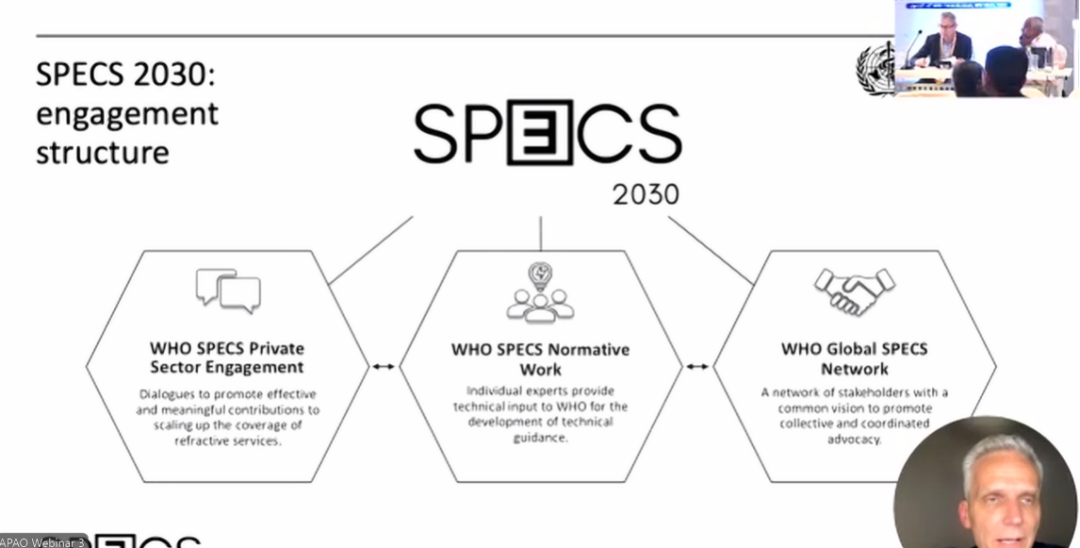
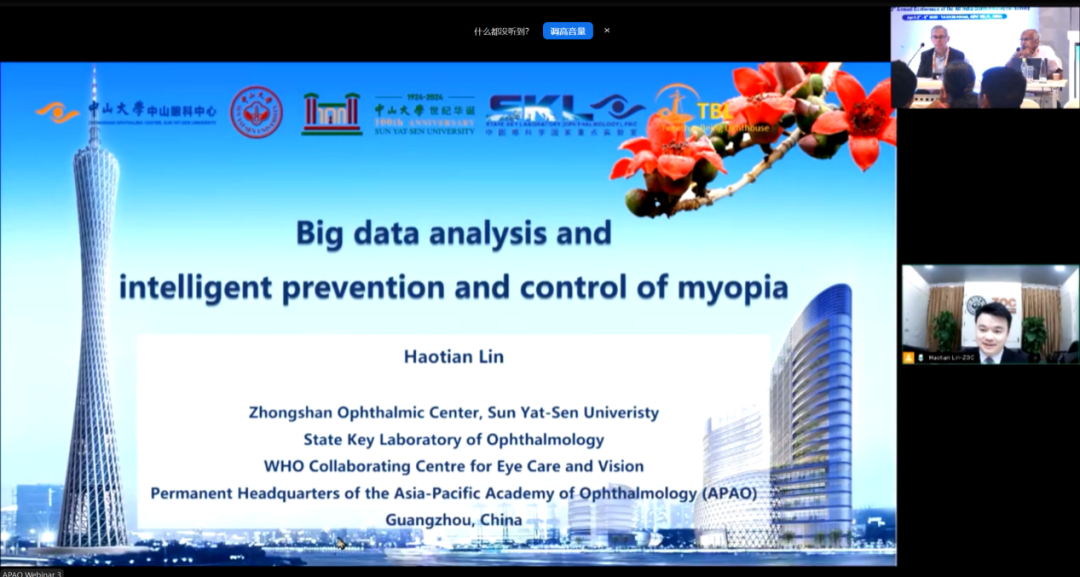
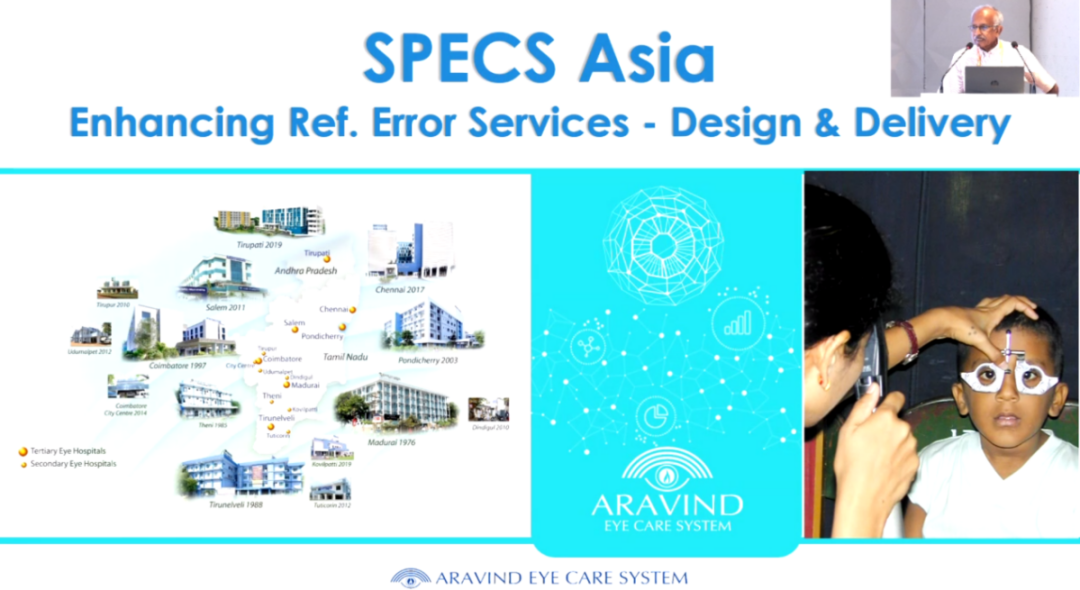
Andreas Mueller, Lin Haotang, and Thulasiraj Ravilla delivering keynote speeches
Under the theme “SPECS Asia: Addressing the Refractive Error Challenges,” the symposium focused on the promotion and implementation of the WHO SPECS 2030 global initiative in the Asia-Pacific region. Professor Lin Haotang shared ZOC's experience in empowering eye health services through innovative technology, highlighting the use of remote sensing, artificial intelligence, and big data in myopia prevention and control. Dr. Andreas Mueller from WHO Headquarters outlined strategic pathways from a global perspective to achieve the effective coverage of refractive error (eREC) targets. Thulasiraj Ravilla from Aravind Eye Hospital shared India's successful experiences in strengthening refractive services from the perspectives of service design and delivery. During the panel discussion session, participants from Singapore, China, India, Australia, and other countries shared practical experiences and offered constructive suggestions on improving the accessibility, acceptability, and quality of refractive services.
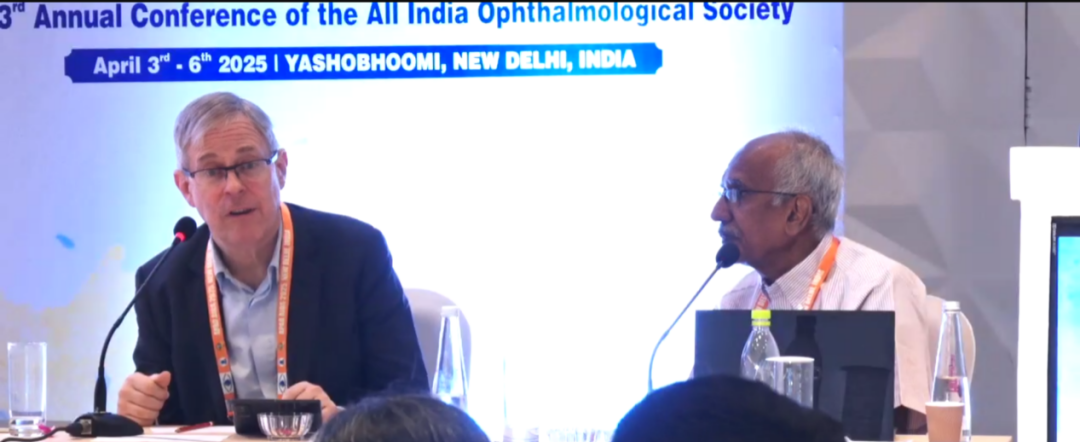
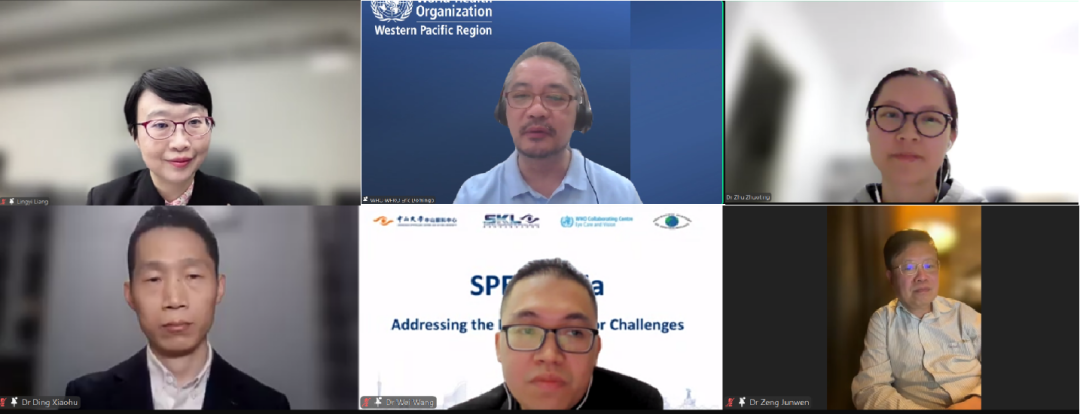
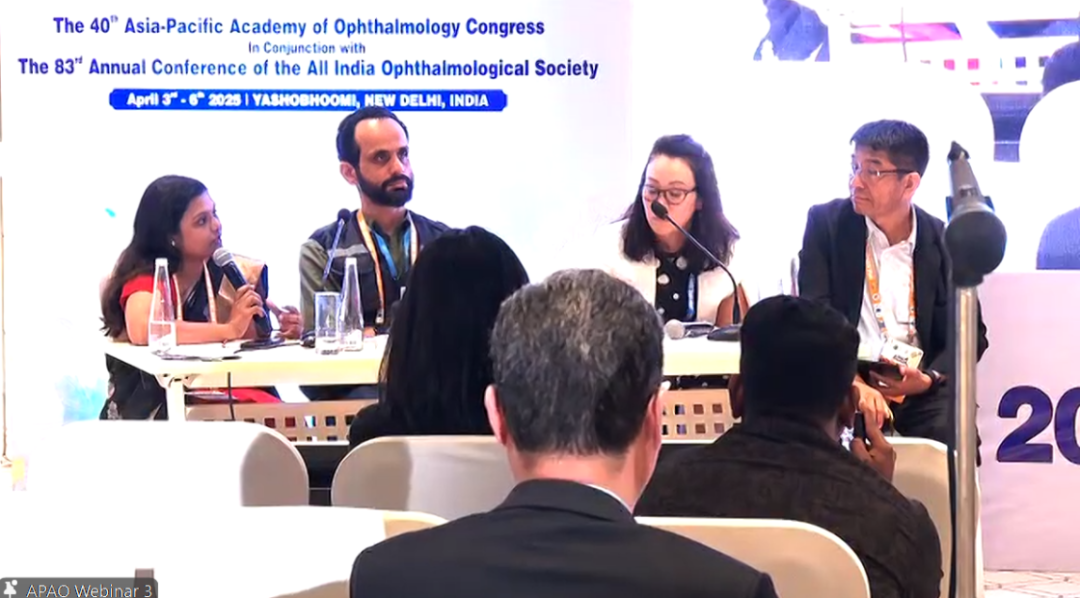
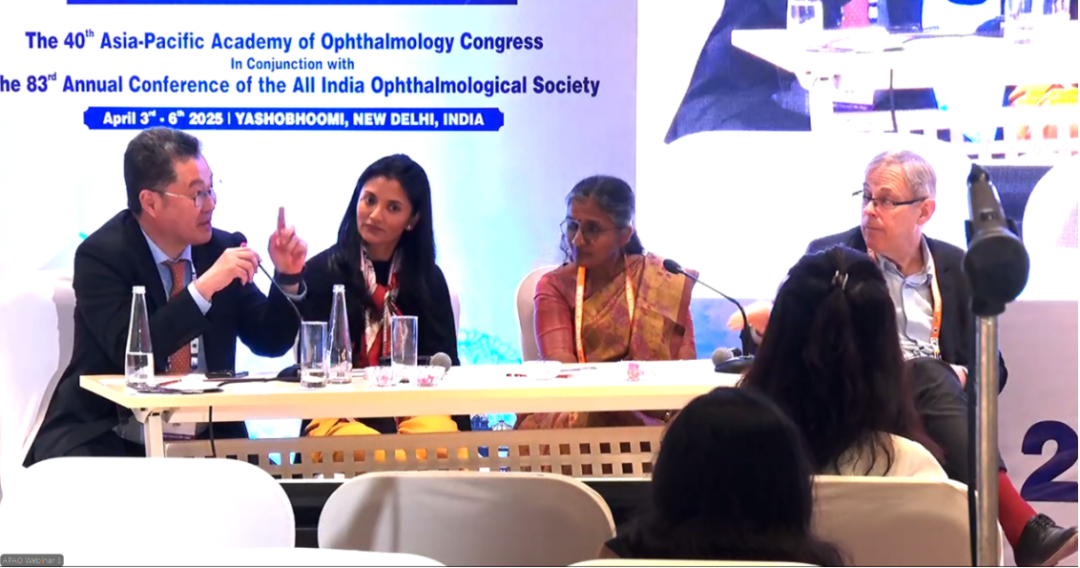
Panel discussion with participating experts
About SPECS 2030
The 74th World Health Assembly collectively adopted the global eye care target: a 40-percentage-point increase in effective refractive errors coverage (eREC) by 2030. The SPECS 2030 initiative is a global action plan dedicated to supporting member states in achieving this eREC 2030 target. It calls on countries to coordinate activities across five key areas: Services, Personnel, Education, Cost, and Surveillance, ensuring everyone in need has access to reliable, affordable, and people-centered quality refractive error services. ZOC participated in the development of the SPECS 2030 initiative and was officially designated as one of the global 31 SPECS member units by WHO in January 2024. To promote the implementation of SPECS 2030 in China, ZOC has led and organized collaborations with multiple provincial blindness prevention institutions to continuously explore refractive correction pathways and implementation models suitable for China's context.
Eye health is crucial for sustainable social development and the well-being of all humanity. As ZOC marks its 60th anniversary, it remains committed to its founding mission of "Kindness · Truth · Innovation." Leveraging international cooperation platforms, ZOC will continue to unite the expertise of ophthalmologists across the Asia-Pacific region to contribute significantly to the global cause of eye health.

